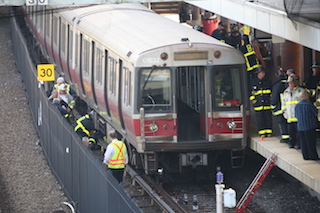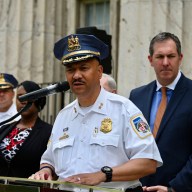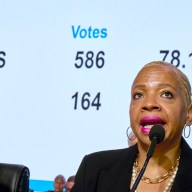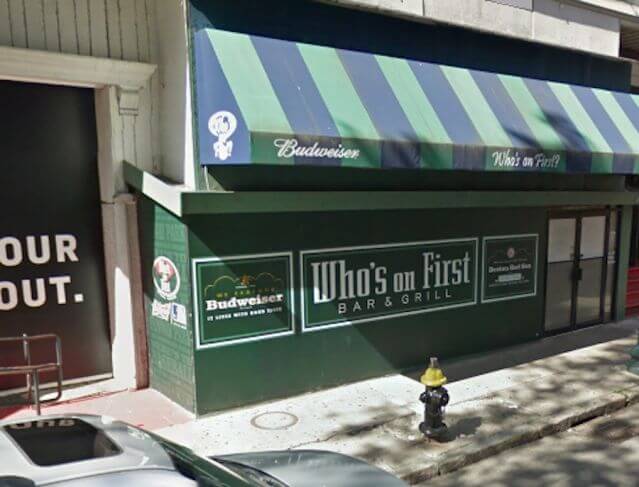If you’ve ever driven over the Tobin Bridge or seen a sign offering help, odds are you have seen the Samaritan signs offering a lifeline for people who might seek a permanent solution to temporary problems. Now, commuters on Boston’s public transit will be privy to that message.
The T and the Samaritans want people who are depressed and desperate to know that there is someone they can talk to should they feel like they’ve reached a point of no return.
Friday marks the beginning of a new anti-suicide program in which the T will begin broadcasting helplines for suicidal passengers. The helpline will now be available via the same announcement system that tells people when the next train arrives. “The idea came when two people attempted suicides on the Red Line [last year] at Broadway and at Downtown Crossing during the afternoon commute,” said T General Manager Frank DePaola.
“As we went through the ‘what we could have done differently?’ conversation, someone asked about a lifeline like the ones at the Tobin Bridge,” siad DePaola.
This lead the T to the Samaritans, who offer a voice of support in the face of desperation and destitute depression.
“The primary goal of the ‘You are Not Alone’ campaign is to raise awareness of the Samaritans’ mission and help line,” T spokesman Joe Pesaturo told Metro.
In the last three years, on MBTA train tracks, there were 28 deaths that were ruled suicides, according to T data. Sixteen of these deaths happened on commuter rail tracks and 12 on subway tracks.
“We will have some kind of message up permanently,” Depaola said. “Those will run from now into May, and passengers might see a heavy circulation of Samaritan information.”
As the T adds 80 new digital screens in the stations, the message will run daily, offering a help line call and text number. These messages will start airing at 3 p.m. Friday at “key transit stations,” and will expand to cars and bus stations. The T’s next move will involve signs at Commuter Rail stations and PSA posters in the coaches. “We want to get the word out to commuters that if you’re, hopeless, lonely, desperate we’re here to help,” said Samaritans Executive Director Steve Mongeau. “We now have a text line for our statewide health line, which started in October.” Since its inception, more than 500 people have texted the help line.
“It seems to be a prefered method for teens and folks in their 20’s,” Mongeau said. “ We’ve had a phone line for 40 years, but this is a new chapter. This program is brand new. We don’t ask question, and in our minds, if young people are more comfortable texting in their struggles, we’re here to help.” The new interface of text messages seems to make all the difference in the world for those in the Millennial age demographic. Since the text line was opened in October, over 500 people have texted in for help. “It’s amazing how quickly they get to the point,” Mongeau said. “People struggle with a wide variety of issues, but it tends to be about people being uncomfortable sharing their struggles with others can reach out confidentially and remain anonymous to a program that says ‘it’s ok to feel what you’re feeling.’” In the last five years, Massachusetts has seen an average of 600 suicides each year according, to Samaritan data.
A study from American Foundation for Suicide Prevention found that 93 percent of suicide survivors have been found alive 20 years later.
“They did not want to die, but they were in pain and felt desperate,” Mongeau said. “The permanent solution for a temporary problems is a very real problem, and we’re here to help. If we can save just one life through this program, it is all worth it.”
MBTA and Samaritans roll out anti-suicide ‘You’re Not Alone’ project

Nic Czarnecki/Metro Boston


















